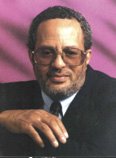Carl Ellis points out its importance.
“Like classical music, the classical approach to theology comprises the formal methods of arranging what we know about God and his world into a reasoned, cogent and consistent system. Classical theology interacts in the critical dialogue with the philosophies of the world. It investigates the attributes of God and communicates primarily through a written tradition.”[1]
We are forever indebted to those who have codified and systematized the substance of our faith. Being able to “Know what we believe and Why We Believe” as Paul Little put it, is essential for being able to “give an answer for the hope that lies within.” Classical theology has done much to build our faith by helping us to see that there are good reasons and not just reasons that sound good for our faith. “Classical theology and classical music reflect God’s oneness. The unity of God’s purpose and providence is reflected in the consistent explanations and consonant harmonies of classical music and classical theology. The genius of classical theology is in the theology as it was formulated.”[2]
Yet most of us are bored with the classical approach to Christianity. Something gets lost in the propositions and proposals. Inspiration to lay our life on the line for Jesus rarely comes from hearing another 10 reasons why the Bible is the Word of God. It isn’t that we don’t care or that these things don’t matter. We need Classical Theology, but it is incomplete.
Classical theology engages our heads Jazz theology awakens our hearts.
[1] Free At Last, Carl Ellis
[2] Ibid., p


